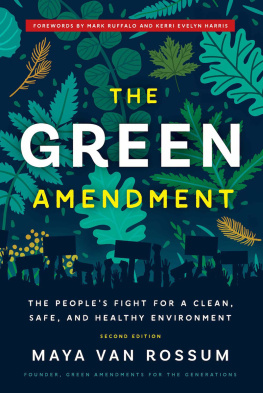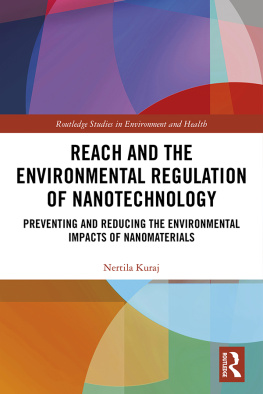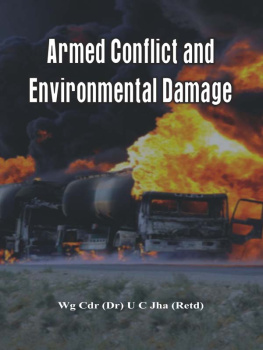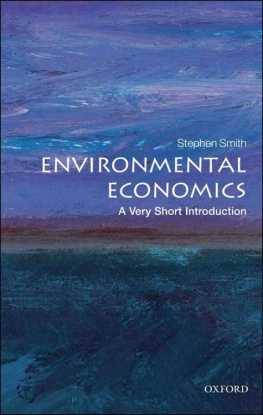Critical Government Documents on the Environment
Appendix C: Resources
American Water Works Association
Public Affairs Department
6666 West Quincy Avenue
Denver, CO 80235
Phone (303) 794-7711
www.awwa.org
Association of Metropolitan Water Agencies
1620 I Street NW Suite 500
Washington, DC 20006
Phone (202) 331-2820
Fax (202) 785-1845
www.amwa.net
Association of State Drinking Water Administrators
1401 Wilson Blvd. Suite 1225
Arlington, VA 22209
Phone (703) 812-9505
www.asdwa.org
Clean Water Action
4455 Connecticut Avenue NW Suite A300
Washington, DC 20008
Phone (202) 895-0420
www.cleanwater.org
Consumer Federation of America
1620 I Street NW Suite 200
Washington, DC 20006
Phone (202) 387-6121
www.consumerfed.org
The Groundwater Foundation
P.O. Box 22558
Lincoln, NE 68542 Phone
(800) 858-4844
www.groundwater.org
The Ground Water Protection Council
13308 N. Mac Arthur Oklahoma City,
OK 73142
Phone (405) 516-4972
www.gwpc.org
International Bottled Water Association
1700 Diagonal Road Suite 650
Alexandria, VA 22314
Phone (703) 683-5213
Information Hotline 1-800-WATER-11
ibwainfo@bottledwater.org
National Association of Regulatory Utility Commissioners
1101 Vermont Ave NW Suite 200
Washington, DC 20005
Phone (202) 898-2200
www.naruc.org
National Association of Water Companies
2001 L Street NW Suite 850
Washington, DC 20036
Phone (202) 833-8383
www.nawc.org
National Drinking Water Clearinghouse
West Virginia University
P.O. Box 6064
Morgantown, WV 26506
Phone (800) 624-8301
www.ndwc.wvu.edu
National Ground Water Association
601 Dempsey Rd
Westerville, OH 43081-8978
Phone: (800) 551-7379
www.ngwa.org
National Rural Water Association
2915 South 13th Street
Duncan, OK 73533
Phone (580) 252-0629
www.nrwa.org
Natural Resources Defense Council
40 West 20th Street
New York, NY 10011
Phone (212) 727-2700
www.nrdc.org
NSF International
P.O. Box 130140
789 North Dixboro Road
Ann Arbor, MI 48113
Phone (800) NSF-MARK
www.nsf.org Rural Community Assistance Program
1522 K Street NW Suite
400 Washington, DC 20005
Phone (800) 321-7227
www.rcap.org
Underwriters Laboratories Corporate Headquarters
2600 N.W. Lake Road
Camas, WA 98607
Phone (877) 854-3577
www.ul.com
Water Quality Association
4151 Naperville Road
Lisle, IL 60532
Phone (630) 505-0160
www.wqa.org
U.S. Environmental Protection Agency Water Resource Center
1200 Pennsylvania Avenue NW RC-4100T
Washington, DC 20460
SDWA Hotline (800) 426-4791
www.epa.gov/safewater
Water Systems Council National Programs Office
101 30th Street NW Suite 500
Washington, D.C. 20007
Phone: (202) 625-4387
Wellcare Hotline 888-395-1033
www.watersystemscouncil.org
EPA Region 1
(CT, ME, MA, NH, RI, VT)
Phone (888) 372-7341
Phone (617) 918-1614
EPA Region 2
(NJ, NY, PR, VI)
Phone (212) 637-3000
EPA Region 3
(DE, DC, MD, PA, VA, WV)
Phone (215) 814-5000
EPA Region 4
(AL, FL, GA, KY, MS, NC, SC, TN)
Phone (404) 562-9900
EPA Region 5
(IL, IN, MI, MN, OH, WI)
Phone (312) 353-2000 EPA
EPA Region 6
(AR, LA, NM, OK, TX)
Phone (214) 665-2200
EPA Region 7
(IA, KS, MO, NE)
Phone (913) 551-7003
EPA Region 8
(CO, MT, ND, SD, UT, WY)
Phone (303) 312-6312
EPA Region 9
(AZ, CA, HI, NW, AS GU)
Phone (415) 947-8000
EPA Region 10
(AK, ID, OR, WA)
Phone (206) 553-1200
CRITICAL DOCUMENTS SERIES
- Critical Government Documents on the Environment by Don Philpott, 2015.
- Critical Government Documents on Health Care by Don Philpott, 2015 (forthcoming).
- Critical Government Documents on Law and Order by Don Philpott, 2015 (forthcoming).
Published by Bernan Press
An imprint of The Rowman & Littlefield Publishing Group, Inc.
4501 Forbes Boulevard, Suite 200, Lanham, Maryland 20706
www.rowman.com
800-865-3457; info@bernan.com
Unit A, Whitacre Mews, 26-34 Stannary Street, London SE11 4AB
Copyright 2015 by Bernan Press
All rights reserved. No part of this book may be reproduced in any form or by any electronic or mechanical means, including information storage and retrieval systems, without written permission from the publisher, except by a reviewer who may quote passages in a review. Bernan Press does not claim copyright in U.S. government information.
Library of Congress Control Number: 2015936608
ISBN: 978-1-59888-747-1
E-ISBN:.978-1-59888-748-8
 The paper used in this publication meets the minimum requirements of American National Standard for Information SciencesPermanence of Paper for Printed Library Materials, ANSI/NISO Z39.48-1992.
The paper used in this publication meets the minimum requirements of American National Standard for Information SciencesPermanence of Paper for Printed Library Materials, ANSI/NISO Z39.48-1992.
Printed in the United States of America
Summary Contents
Acknowledgement
This book is one of a series that looks at critical issues of our times. The subject of this book is the environment and a review of many of the major environmental issues facing us today. The book does not offer any new science or attempt to take sides. This book has relied heavily on the vast wealth of information that is in the public domain. Almost all the material comes from federal, state and local public domain websites as well as environmental groups, energy companies and trade associations and politicians. These include the Department of the Interior, Environmental Protection Agency, Department of Health and Human Services, the White House, Natural Resources Defense Council, Audubon Society, Heartland Institute, Heritage Foundation, U.S. National Academies of Science, NASA, National Oceanic & Atmospheric Administration, American Association of Petroleum Geologists, Intergovernmental Panel on Climate Change, United Nations Environment Programme and many more. The sources for the material contained herein are presented at the end of each chapter under the heading Source Material. Sources that are summarized or used for research, but not quoted directly, are listed under Further Reading.
Introduction
The environment is everything around us. We are all part of the environment and have an impact on it whether we realize it or not. All the components of the environmentland, water, air, plants and animalshave their own individual and collective impacts on it and on us.
Although the earth has been around for millions of years, man has only been seriously interested in protecting and preserving the environment for less than 200 years and the terms conservationism and environmentalism are little more than 100 years old.
For most of history mankind was too busy surviving to worry about anything other than putting food on the table, staying warm in the winter, protecting the family and keeping enemies at bay. The industrial revolution changed all that. In the late-eighteenth century new power-driven manufacturing processes created millions of jobs. The mechanization of cotton spinning powered by steam or water increased the output of one worker about a thousand fold. Cotton replaced wool as the main textile material and demand led to huge plantations around the world and especially in the southern United States.









 The paper used in this publication meets the minimum requirements of American National Standard for Information SciencesPermanence of Paper for Printed Library Materials, ANSI/NISO Z39.48-1992.
The paper used in this publication meets the minimum requirements of American National Standard for Information SciencesPermanence of Paper for Printed Library Materials, ANSI/NISO Z39.48-1992.